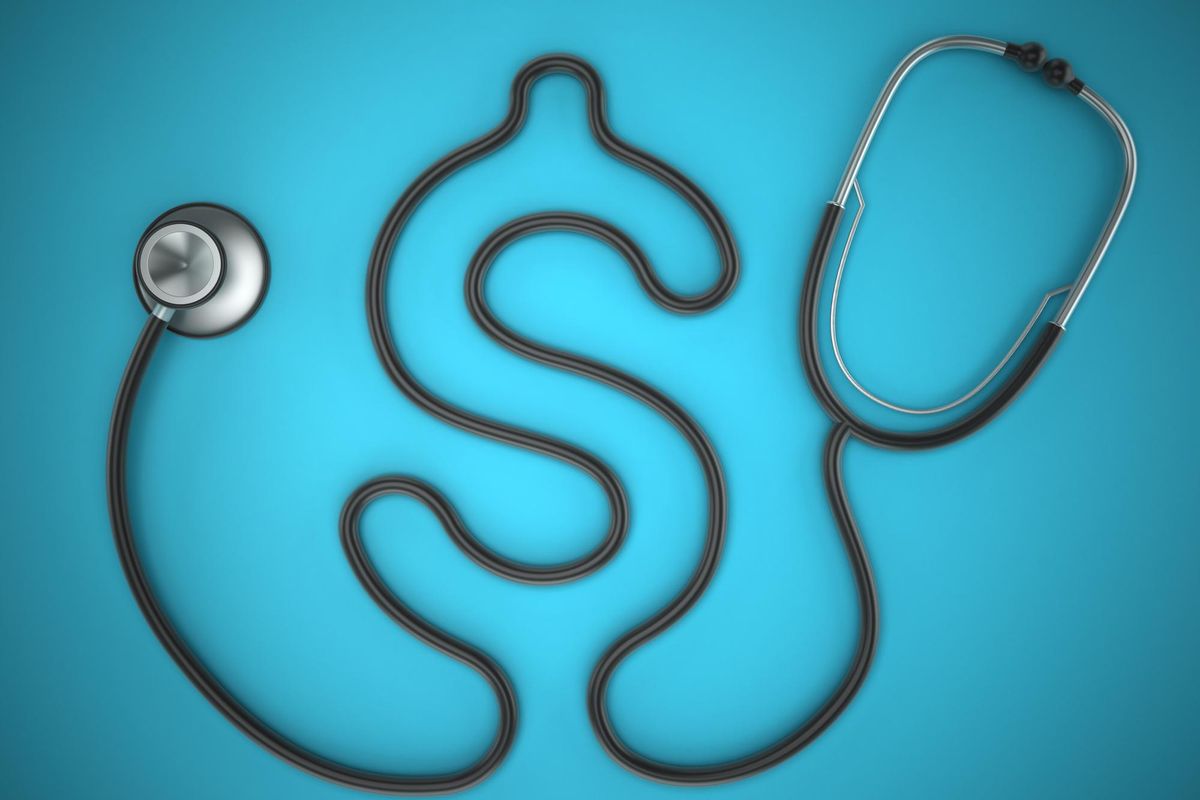Lisa Keller thought she was done with cancer. She'd already survived a rare sarcoma at age 12 and breast cancer at age 28, so she was unprepared mentally — and financially — when she was diagnosed with breast cancer again in December of 2017 at age 44.
Earlier that year, Keller had filed for bankruptcy due to debt from a divorce. She'd recently switched jobs to join a small healthcare consulting firm that, ironically, didn't have great health insurance. What hadn't seemed important when she signed up — a $7,000 annual deductible and $10,000 out-of-pocket maximum — became all too relevant when Keller had to come up with thousands of dollars to pay for her cancer treatment.
"The hospital wouldn't even schedule my mastectomy until I paid $3,000," Keller said.
She didn't have it. Keller's mother, father and grandmother each contributed $1,000 to help her out.
"Had I not had them to rely on, I'm unsure what I would have done," she said.
Now 48 and healthy, Keller is still paying off what she estimates ultimately came to $30,000 in cancer care costs. She also had to give up her own place and move back in with her mother.
"It's embarrassing to live in your mom's basement in your 40s, you know?" Keller said. "Luckily, I do see sunshine at the end of the tunnel but [it] feels like it's been a long, tough road."
Healthcare costs tend to go in one direction: up
Like Keller, millions of women struggle with healthcare costs, especially as healthcare inflation rises.
Overall, the United States spent $3.8 trillion on health care in 2019, more than double the spending in 2000, outpacing the overall growth of the U.S. economy. On a per-person basis, that equated to $11,582 — a sixfold increase since 1970.
And rising healthcare costs hit Americans directly.
In 2020, employees paid 37% more for their share of health insurance premiums than they did in 2010. Individuals paid an average of more than $1,200 and families paid nearly $5,600 toward their health insurance premiums, according to Kaiser Family Foundation (KFF) data. In addition, Americans are paying higher out-of-pocket healthcare costs.
The KFF data show that 83% of employees had health insurance with a deductible in 2020 — and the average deductible was $1,644 — up 79% in the past decade.
It's been hard for many Americans to absorb these cost increases because they've outpaced employee earnings. Average deductibles increased 111% from 2010 and 2020, and wages only rose by 27%.
Healthcare-induced financial hardship
In addition to increased deductibles, healthcare costs have risen as well, meaning more Americans struggle to afford their care.
In a 2021 Gallup/West Health survey, 18% of respondents, or 46 million people, reported that they would not be able to pay for quality health care if they needed it. The same percentage said that someone in their household had skipped health care they needed in the past year because of cost.
Even for people with health insurance like Keller — who had actually paid more each month to get the best health insurance option her employer offered — rising out-of-pocket healthcare costs can be crushing.
In 2019, KFF found that four in 10 people with health insurance through an employer reported some kind of difficulty affording health care. Half of Americans surveyed in another KFF poll reported putting off care because of cost, and 13% said their condition got worse as a result.
To manage healthcare costs, many Americans have to spend less on other essentials. In the 2021 Gallup/West Health survey, 26% reported cutting back spending on clothing, 12% on food and 11% on over-the-counter drugs in order to pay for health care.
Not only do exorbitant healthcare costs lead people to compromise their health or leave them no choice but to forgo essentials in the present, but they leave many Americans financially vulnerable and in worse shape for the future.
In a 2019 survey by Gallup and West Health, 12% of Americans reported borrowing money — an average of more than $2,800 — and 13% reported withdrawing an average of nearly $3,800 from long-term savings to pay for health care.
Nearly half (45%) worried that a major health event could send them into bankruptcy — and those fears may be well founded.
Estimates of medical bankruptcy vary widely, but studies suggest medical bills may cause approximately 60% of personal bankruptcies, affecting as many as 1 to 2 million Americans a year, and KFF reports that 9% of Americans have declared personal bankruptcy at some point in their lives because of medical debt.
For others, medical bills put them in a precarious financial position. One in five said that someone in their household had been contacted by a collection agency in the past year because of outstanding medical bills.
How to reduce hardship from healthcare costs
At a recent webinar co-sponsored by HealthyWomen and Savvy Ladies, a free financial education resource for women, experts discussed how interrelated health and financial wellness are and ways to improve both.
Though healthcare costs can be overwhelming, there are strategies to make them more manageable.
- If you're uninsured, get coverage if you can, through your job or a partner's job or through your state Medicaid or Health Insurance Marketplace. With federal subsidies to offset the cost of health insurance on the Marketplace, many people can find health insurance for $10 or less per month.
- Before you get medical care, ask what it will cost you — and try to get it in writing. If the estimate is more than you can afford, ask for lower-cost alternatives.
- If you get a bill you can't afford, don't ignore it. Talk to your healthcare provider and make sure they don't send it to collections while you're working it out. Review the bill for errors, such as services you don't remember getting or dates of service that don't match when you got care. Ask the billing office to clarify and, if necessary, correct the charges.
- If the bill seems accurate but you can't afford it, ask the provider to forgive all or part of the bill. Worst case, ask for a payment plan so you can pay it off over time.
- If you're still left with more medical debt than you can afford, seek financial assistance from a local nonprofit agency or group like RIP Medical Debt, the PAN Foundation or the HealthWell Foundation, which provide financial assistance for people with specific conditions.
- New Survey Reveals 44% of Current and Former Patients Living With Cancer Say Cost Was a Factor in Treatment Decisions; 55% Reported Feeling Depressed Over Financial Burden ›
- The Cost of Cancer: The Impact of Cancer-Related Financial Burdens on Emotional Well-Being ›
- Coping with the Cost of Cancer Treatment - HealthyWomen ›
- Lidiar con el costo del tratamiento contra el cáncer - HealthyWomen ›






